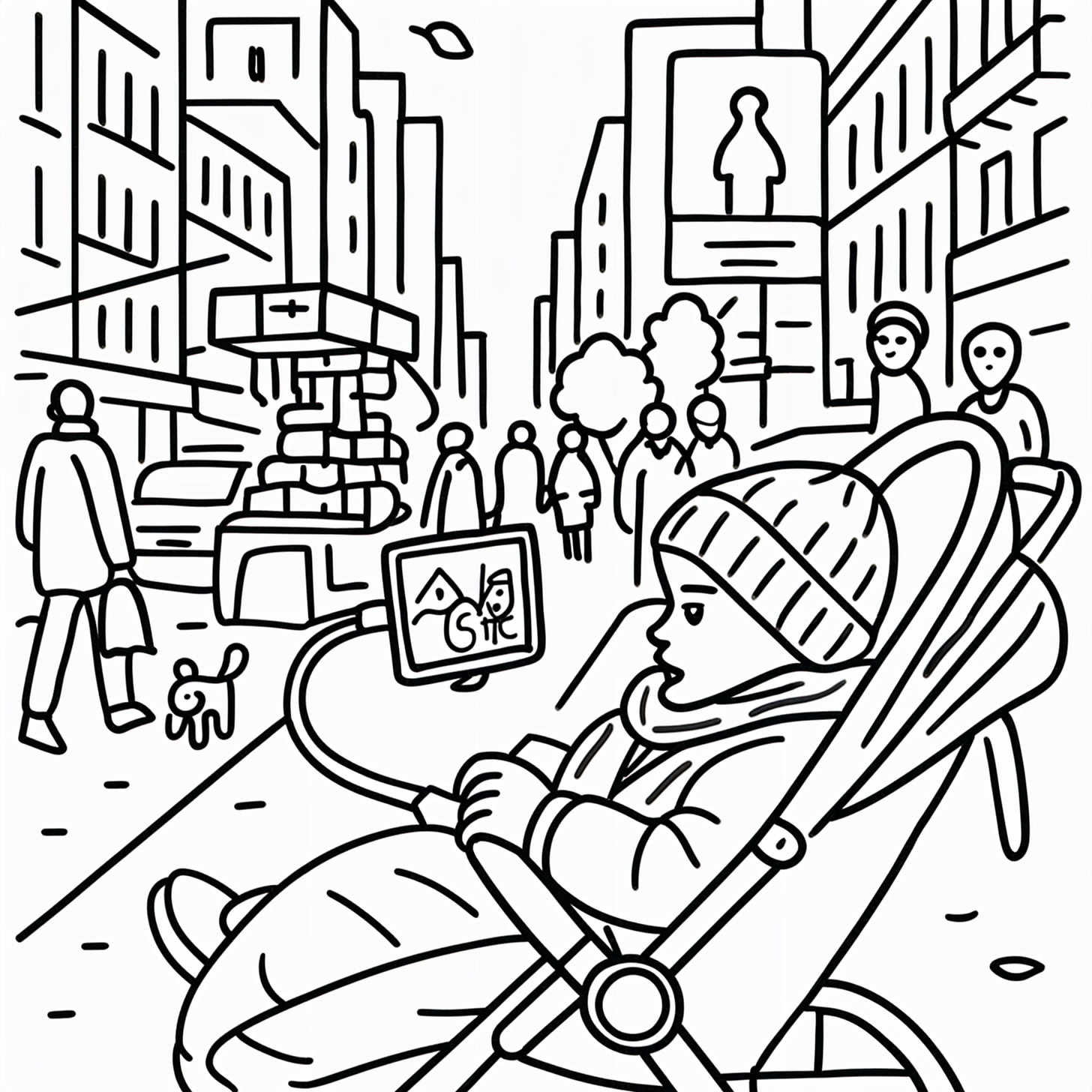2-19: Digital Pacifiers
How Screens Steal Boredom and Resilience
I'm walking through the streets of New York on a beautiful fall morning and I walk by a young mom pushing a stroller with a little girl in it. Her toddler is entranced by an iPhone playing Bluey. A literal earthquake could happen, the sidewalk splitting in front of her, and this little girl's eyes may not even blink as she would miss one millisecond of her cartoon. While I am slightly exaggerating, my heart sank when I saw the iPhone in her hands. I was thoroughly enjoying the sights and scents of the city streets, and can't help but feel that this little girl is missing out on life.
I fully realize there are circumstances where the "iPad pacifier" is the last resort to calming a distressed child. While on an airplane or a train, this can be more acceptable than elsewhere, but only after exhausting other resources. As I do not have any children, it is very easy for me to judge and remark on how other people parent. When I do have children one day, I may find myself biting my tongue regarding this essay, but I feel this topic is a worthy one which deeply influences future generations of children and young adults. Maybe it won’t even be an iPad by then. There might be a new device even more effective at quieting tantrums and filling the silence. If and when that day comes, I’ll be faced with the same choice parents wrestle with now of enduring the chaos or reaching for the pacifier-of-choice.
I can understand why many parents are led to reaching for the iPad more and more. Screens work almost too well, calming a child quicker than a real pacifier and holding their attention longer than any toy or game of hide-and-seek ever could. That effectiveness is a major contributing factor to screens being a crutch. Greg Lukianoff and Jonathan Haidt, in The Coddling of the American Mind, argue that shielding young people from discomfort leads to fragility. When we rush to remove every ounce of discomfort in a child's upbringing, we rob them of the chance to build resilience. A child who never has to wrestle with boredom or frustration never learns how to tame it.
Boredom inspires original thinking, personal reflection, and imagination. Think back to the small thrill of watching a raindrop zoom down the car window on a long drive, zig-zagging its way to the bottom while you sat bored out of your mind in the back seat. Entire childhood afternoons were spent figuring out what to do with nothing. Pillow forts were constructed, sticks became swords, and arguments with siblings sometimes transformed into ridiculous games. Today, the instant boredom appears, a screen rushes in to put out the fire. Instead of discovering the creative spark that emerges when there’s “nothing to do,” kids learn to crave the pre-programmed hits of dopamine through the next video or app.
When I do hopefully become a parent, I know I’ll face the same urge to use the newest gadget that buys a few quiet minutes. Some days I might give in, and other days I’ll hold the line. Even without kids, the lesson feels clear that we should let ourselves and our children sit through bouts of boredom. It's in those struggles that the resilience to face life’s bigger storms begins to grow.


